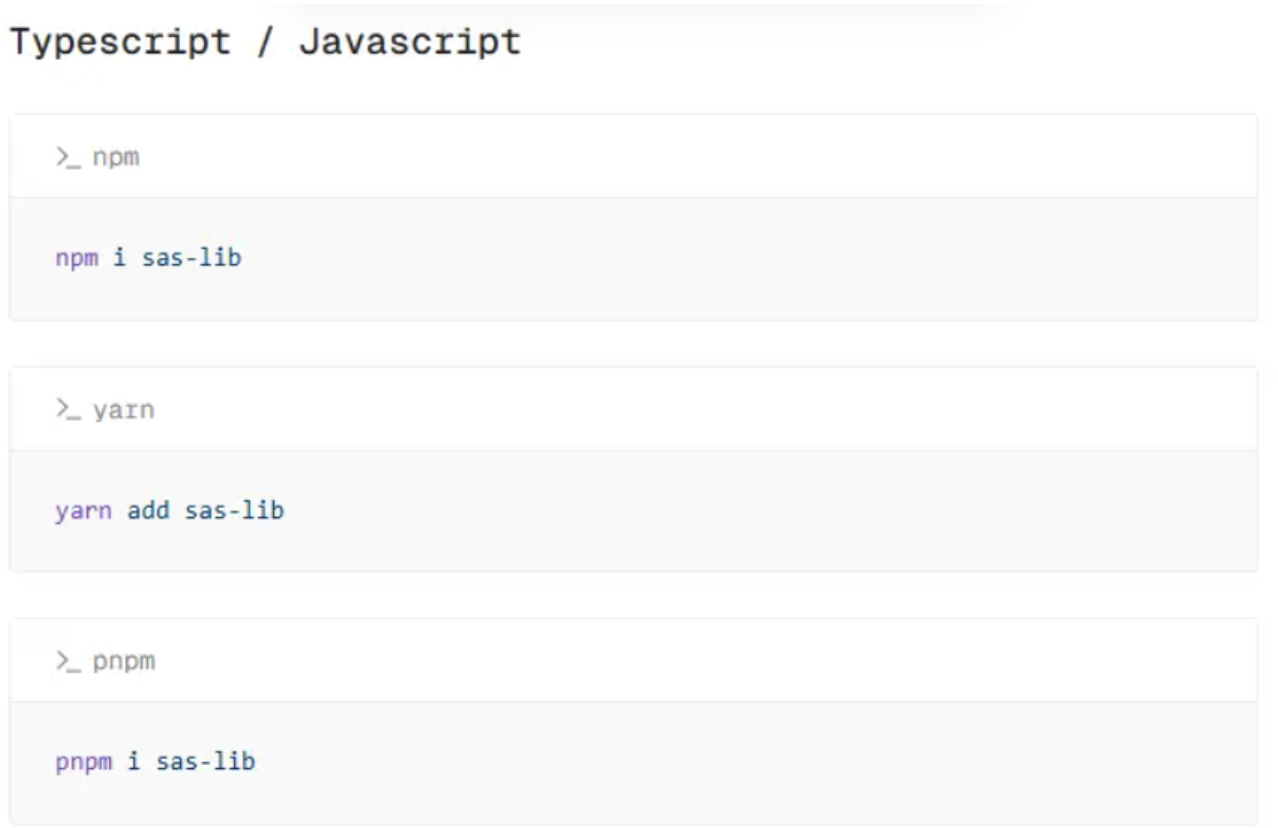告别传统KYC!揭秘Solana认证服务的背后逻辑
什么是Solana认证服务?
Solana认证服务本质上是一个开放、无需许可的协议,旨在实现链上安全、可验证的凭证,而无需暴露敏感的个人数据。它允许被称为“发行方”的可信第三方创建关于用户身份或资质的证明,这些认证随后存储在用户的钱包中。
这些认证可用于在各种应用程序中验证以下内容:
了解你的客户(KYC)状态
地理资格
合格投资者身份
年龄验证
与现实世界组织或活动的关联
认证本身不会泄露敏感信息,而是一种Crypto证明,表明该声明已由受信任方验证。该系统在保护隐私的同时,实现了对服务的无缝安全访问。
Solana身份组:推动链上身份的未来
SAS计划是Solana身份组的首个发布成果,Solana身份组是生态系统参与者之间的合作项目,包括:
Solana基金会:支持网络的增长和安全。
Civic:去中心化身份领域的领导者。
Solana.ID:专注于链上声誉。
Trusta Labs:利用人工智能进行身份验证和女巫攻击抵抗。
Solid:构建全球互操作的身份工具。
这些组织共同为Solana上标准化、可组合的身份层奠定基础。
Solana认证服务的工作原理
SAS通过三方模型和一个专门的链上程序运作:
发行方:发行方是受信任的第三方(如KYC提供方、活动组织者或政府机构),为用户创建认证。这些认证经过数字签名以证明其真实性,并遵循既定标准。
SAS程序:负责发行、验证和管理认证的链上程序。它确保认证是可组合、可互操作且可验证的,无需依赖任何中心化权威。
持有者:用户(持有者)接收认证并将其存储在数字钱包中。由于SAS集成到与Solana兼容的钱包(如Phantom或Backpack)中,用户可在生态系统中携带已验证的凭证。
验证者:这可以是任何DApp、协议或智能合约,在授予服务或通证访问权限之前,会请求验证某些属性(如年龄或居住地)。验证者永远不会看到完整的底层数据,只能看到已验证的声明。
由于该系统是非托管、可组合且可互操作的,开发者可以像搭建积木一样堆叠和组合认证,而无需在设计验证系统时从头开始。
创建认证的步骤:
定义模式:建立认证的结构,指定声明的类型(例如,“年满18岁”、“居住在英国”)。
发行认证:发行方使用其私钥对认证进行签名,并将其与持有者的钱包地址关联。
存储认证:已签名的认证根据隐私要求存储在链上或链下,并与持有者的钱包关联。
这些证明随后可由持有者向验证者展示,验证者无需访问底层个人数据即可验证其真实性。
SAS的关键特性
以下是SAS的关键特性:
可移植凭证:用户在完成一次验证过程后,可以在其他平台上重复使用其认证。
默认隐私保护:仅共享必要的信息。未经许可绝不共享或保留敏感数据。
可组合且可互操作:开发者可以堆叠多个认证以适应复杂的用例。
即时可验证性:无需专门的后台系统,验证者可以通过一次SDK调用即可验证凭证的有效性。
开放基础设施:任何人都可以在SAS上构建。没有中央权威机构管理谁可以发行或验证认证
开始使用Solana的SAS
要将SAS集成到您的应用程序中或发行认证,请按照以下步骤操作:
安装SAS SDK:对于JavaScript/TypeScript项目,手动安装SAS库,如下所示:

对于Rust,使用cargo add solana-attestation-service-client命令。
查阅文档:查看官方SAS文档,
实现认证逻辑:利用SDK在您的应用程序中创建、签名和验证认证。SDK提供了处理整个认证生命周期的函数。
测试集成:在部署到主网之前,在Solana的开发网上测试实现,以确保功能和安全性。
部署到主网:测试完成后,将应用程序部署到Solana主网,并开始发行或验证认证。
SAS的核心用例
SAS支持Web3中的广泛应用程序:
KYC通行证:用户只需进行一次KYC,即可在交易所、DeFi平台和启动板上重复使用已验证的凭证。
基于区域的访问控制:根据用户的司法管辖区,项目可能会限制参与、内容或通证的访问。
女巫攻击抵抗:通过确认用户的唯一性,可以阻止机器人攻击并确保通证的公平分配。
投资者资格认证:验证投资者在提供现实世界资产通证化的平台上的资格。
DAO声誉系统:建立基于信任和功绩的系统,其中投票和奖励反映实际贡献。
DePIN和位置证明:通过验证硬件或地理位置,为去中心化基础设施网络提供支持。
SAS的关键生态系统采用者
SAS的成功在于其采用情况,领先项目已集成或宣布计划支持该协议:
Civic:拥有Civic Pass的用户现在自动持有与SAS兼容的凭证,可解锁在Solana DApps中的合规资产访问权限。
Solana.ID:Solana.ID利用SAS验证工作和职业认证,允许雇主发布不可变的就业证明。
Solid:发行包含KYC和社交凭证的“优先通行证”,可在多个Solana应用中使用。
Trusta Labs:将AI和SAS结合用于DeFi和治理中的身份验证、女巫攻击抵抗和用户定位。
RNS.ID:启用由帕劳政府支持的自主数字身份,与SAS集成以实现可信的链上验证。
Wecan:使用SAS将官方政府登记册(如土地或股东记录)与区块链连接。
Polyflow:在PayFi应用程序中支持可验证的交易和身份,使支付可追溯且合规。
Range:利用链上身份情报增强区块链安全性。
Sumsub:作为领先的KYC提供方,现支持SAS认证,用于其可重用身份框架,帮助用户跨平台无缝注册。
Honeycomb协议:游戏SDK,使用SAS在Solana上的游戏中启用可验证的任务、个人资料和声誉。
Solana认证服务 vs World Network
SAS和World Network(World ID)是两种旨在为Web3带来信任和隐私的去中心化身份系统,但它们在解决问题的方式上存在根本差异。
Solana基金会于2025年5月推出联合Civic、Solid、Trusta Labs和Solana.ID推出SAS,使用户能够接收可验证凭证(如KYC验证、合格投资者身份或地域资格),这些凭证由可信发行方进行加密签名并与用户的Solana钱包关联。
这些认证可以在不同的DApp中重复使用,而无需暴露敏感数据,从而在Solana区块链上构建了一个原生、保护隐私且可组合的身份层。SAS基于软件开发工具包(SDK),无需特殊硬件,因此对开发者和用户都易于使用。它支持DeFi、区域限制访问、DAO参与、女巫攻击抵抗等多种用例。
相比之下,由Tools for Humanity开发并得到Sam Altman支持的World Network,则是围绕“World ID”这一全球生物识别数字身份概念构建的。用户通过在名为“Orb”的设备上扫描虹膜来证明其人类唯一性。
据该项目称,生物识别数据不会被存储,而是转换为可在Web3平台上使用的零知识证明。该系统旨在防止女巫攻击,并实现数字经济的公平参与,包括通证空投、去中心化投票和全民基本收入(UBI)等用例。
虽然SAS专注于现实世界凭证的监管合规性和隐私保护,但World ID则强调人类身份证明,并在以太坊和其他链上不断扩大影响力,包括最终与Solana的集成。
对World Network的批评
World Network在生物识别数据收集实践方面受到了严格审查。批评者认为,该项目依赖虹膜扫描进行身份验证引发了严重的隐私问题。
尽管该项目声称生物识别数据在处理后会被删除,但外界仍对敏感信息的潜在滥用或未经授权的访问持怀疑态度。值得注意的是,Edward Snowden等隐私倡导者已表达了担忧,强调了生物识别数据收集带来的风险。
此外,由于监管和伦理方面的担忧,World Network在多个国家被暂停或禁止运营:
西班牙:2024年3月,西班牙数据保护局以违反欧盟《通用数据保护条例》为由,命令World停止生物特征数据收集活动。
香港:2024年5月,香港个人资料私隐专员公署指示World停止运营,强调了个人资料隐私的风险以及其验证过程的非必要性。
德国:巴伐利亚州数据保护局得出结论认为World的做法侵犯了数据保护法,命令删除在该国收集的所有存储的虹膜代码。
肯尼亚:由于安全、隐私和财务方面的担忧,于2023年8月被暂停运营。
印度尼西亚:2025年5月,通信和数字事务部在接到公众投诉并可能违反电子系统法规后,暂时暂停了World的活动。
这些行动反映了全球对生物识别数据收集的伦理和法律影响的日益担忧,尤其是在涉及弱势群体或缺乏透明同意机制的情况下。
反观SAS通过利用受信任发行方的Crypto认证,允许在Solana生态系统内的去中心化应用程序中进行可重复使用且保护隐私的身份验证。
但需注意的是,SAS仍处于早期阶段。尽管已吸引了Civic和PolyFlow等项目的兴趣和初步采用,但其长期可行性和可扩展性仍有待证明。SAS在应对复杂身份验证挑战、确保广泛采用以及维护强大安全标准方面的有效性,尚未完全实现。
Solana可编程身份的未来
Crypto领域的身份未来将是:
用户可控
合规性强
互操作性高
注重隐私
Solana认证服务以客户可以信赖、开发者可以融入的格式提供了所有这些特性。它降低了运营复杂性、监管摩擦和冗余。
随着DeFi、游戏和现实世界资产平台上对身份感知应用程序的需求不断增长,SAS使Solana成为安全且可扩展的区块链身份基础设施的先驱。
结论
Solana认证服务不仅仅是一个协议,它是构建更安全、更智能的Web3的基础层。凭借重要身份合规提供商的支持、不断扩展的应用场景和直观的开发者接口,SAS很快将成为Solana生态及更广泛领域的身份标准。
对于用户来说,它意味着控制。对于开发者来说,它意味着速度和信任。对于监管机构和机构来说,它意味着在不妥协的情况下实现合规。
SAS已经到来,而这仅仅是个开始。
声明:本文仅供读者学习参考,不作为任何投资建议,请大家保持谨慎客观。
免责声明:本文章仅代表作者个人观点,不代表本平台的立场和观点。本文章仅供信息分享,不构成对任何人的任何投资建议。用户与作者之间的任何争议,与本平台无关。如网页中刊载的文章或图片涉及侵权,请提供相关的权利证明和身份证明发送邮件到support@aicoin.com,本平台相关工作人员将会进行核查。



